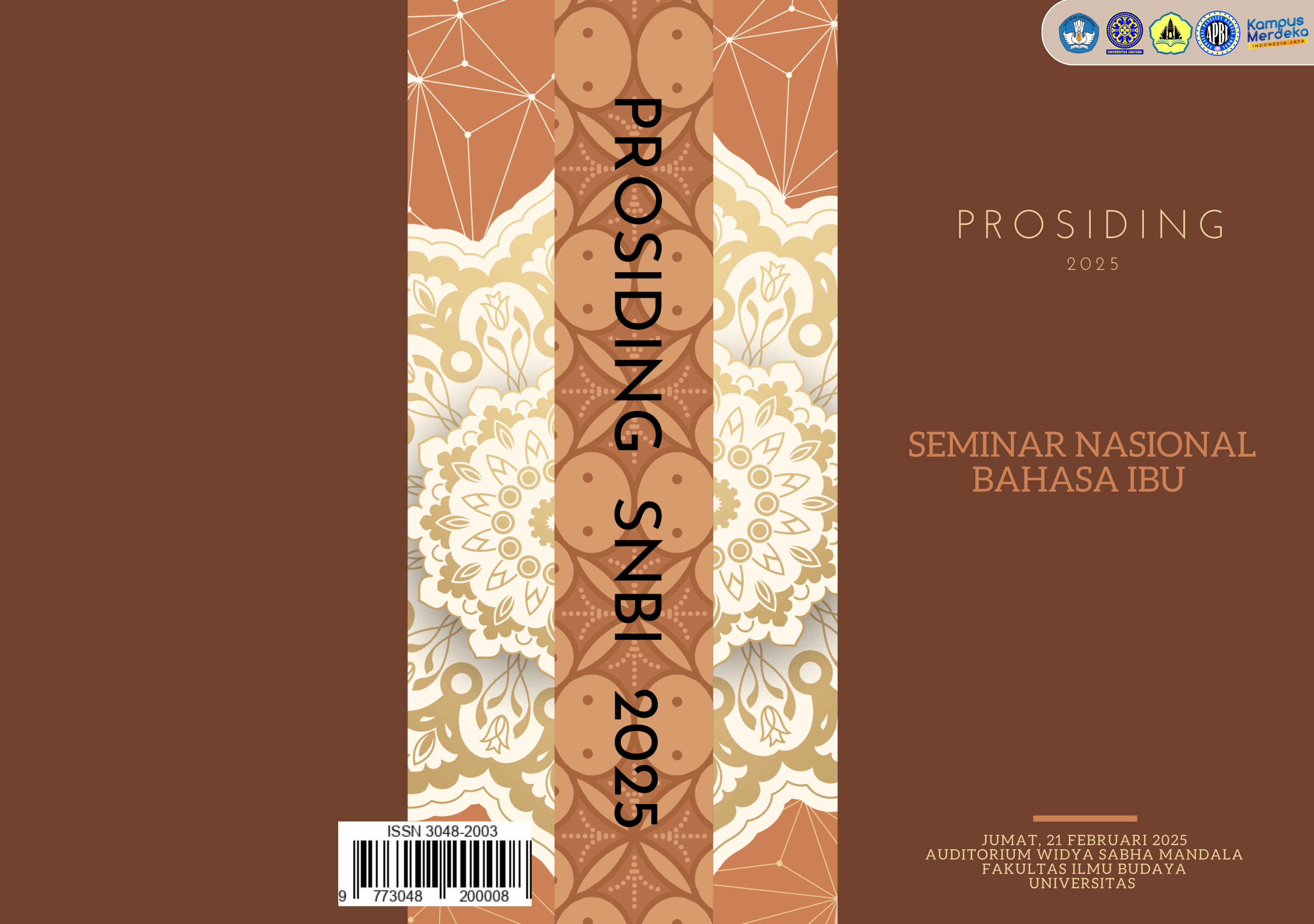SISTEM KEKERABATAN PADA BAHASA AMANUBAN: KAJIAN SEMANTIK
Abstract
Kinship relations in a society are marked using certain words such as father, mother, cousin, uncle according to lineage or by marriage. Different languages have different kinship terminology, such as the Amanuban language spoken on West Timor. The results of this study found that the Amanuban kinship system uses several similar terms for consanguinal and affinal relationships, and differentiate them using honi ‘blood relative, born, dear’ for consanguinal relationships. (As a verb, honi can also mean ‘live, life, give birth, be born’.) Several kinship terms have lexicalized meanings based on metaphors at the phrase level to form kin terms. This study uses a semantic approach with a qualitative descriptive method to identify kin terms in the Amanuban language and to explore the meaning reflected in the kinship system.

 Dikelola oleh Program Magister dan Doktor Ilmu Linguistik Fakultas Ilmu Budaya Universitas Udayana
Dikelola oleh Program Magister dan Doktor Ilmu Linguistik Fakultas Ilmu Budaya Universitas Udayana
